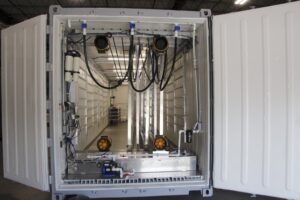Technological advancements in farming have dramatically transformed the way we grow and manage crops. Precision agriculture, which uses GPS, sensors, and data analytics, allows traditional farmers to monitor soil conditions, water usage, and crop health in real-time. This technology helps optimize resource use, reduce waste, and increase yields. When applying inputs like water and fertilizers more precisely, farmers can achieve better results with less environmental impact. 
Automation is another significant breakthrough in modern farming. Robotics and AI-driven machinery are increasingly used for tasks such as planting, weeding, and harvesting. These technologies reduce labor costs and improve efficiency, especially in large-scale operations. Drones are also becoming more common, helping farmers survey their fields from above, monitor crop growth, and even apply treatments like pesticides more accurately.
Vertical farming, a method of growing crops in stacked layers, has gained popularity as a space-efficient and environmentally friendly solution. This approach uses less water, eliminates the need for soil, and allows for year-round production regardless of weather conditions. By controlling the environment, vertical farms can produce consistent and high-quality yields with fewer resources compared to traditional farming.
Container-based farms, a specific type of vertical farming, are an exciting innovation and have been developed in part by FarmBox Foods. These farms repurpose shipping containers into self-contained, climate-controlled growing environments. Equipped with advanced hydroponic or aeroponic systems, they enable food production in urban areas or places with limited agricultural space. Container farms are highly efficient, using up to 90% less water than traditional methods and often running on renewable energy.
Tech advancements like precision agriculture, automation, vertical farming and container-based farms are revolutionizing the farming industry. They make it possible to grow more food with fewer resources, reduce environmental impact, and bring fresh produce closer to consumers, even in urban settings. These innovations are not just enhancing productivity but also paving the way for a more sustainable and resilient agricultural future.
